Just In
- 26 min ago

- 1 hr ago

- 4 hrs ago

- 4 hrs ago

Don't Miss
- Movies
 Dil Dosti Dilemma: Queer Celebrity Designer Rick Roy To Make Special Guest Appearance In Prime Video Show
Dil Dosti Dilemma: Queer Celebrity Designer Rick Roy To Make Special Guest Appearance In Prime Video Show - Sports
 BAN vs ZIM: Sikandar Raza to lead Zimbabwe in Bangladesh T20Is, former captain's son named in squad
BAN vs ZIM: Sikandar Raza to lead Zimbabwe in Bangladesh T20Is, former captain's son named in squad - Finance
 Rs 8.50/Share Dividend Recommended: Nestle India Reports 27% YoY Jump In Profit
Rs 8.50/Share Dividend Recommended: Nestle India Reports 27% YoY Jump In Profit - Automobiles
 FanCode Brings The 2024 DTM Season To India With Exclusive Broadcast Rights
FanCode Brings The 2024 DTM Season To India With Exclusive Broadcast Rights - Education
 JEE Main Result 2024 Out, Check Category- Wise Toppers' List Here
JEE Main Result 2024 Out, Check Category- Wise Toppers' List Here - Technology
 Qubo InstaView Video Door Phone Launched in India: Check Price, Features
Qubo InstaView Video Door Phone Launched in India: Check Price, Features - News
 Karnataka Weather Alert: Clouds And Sun to Play Together In Bengaluru Weather Forecast
Karnataka Weather Alert: Clouds And Sun to Play Together In Bengaluru Weather Forecast - Travel
 Escape to Kalimpong, Gangtok, and Darjeeling with IRCTC's Tour Package; Check Itinerary
Escape to Kalimpong, Gangtok, and Darjeeling with IRCTC's Tour Package; Check Itinerary
National Nutrition Week 2018: Important Nutrients Required In Your 20s
The National Nutrition Week is celebrated from September 1 to September 7. It aims at making people aware about the importance of their health and well-being. The theme of the National Nutrition Week is nourishment. So, in this article, we will be writing about the nutrients required in your 20s
When you are in your 20s, the body undergoes different changes that make your brain and metabolism run smoothly. And when you reach your 30s and 40s, everything from your brain to your metabolism slows down. This happens because your body is changing over time, and along with it the intake of nutrients should also change.

Your diet plays an important role so here's how your diet should change in your 20s.
Important Nutrients Required In Your 20s
When you are in your 20s, your body is growing, which means healthy eating is very necessary. But, many choose to eat fatty and oily foods instead. The intake of processed food and sugary foods can also cause unnecessary weight gain. Hence it's important to opt for a healthy diet to boost the assimilation of nutrients.
These are the important nutrients you should add in your plate:
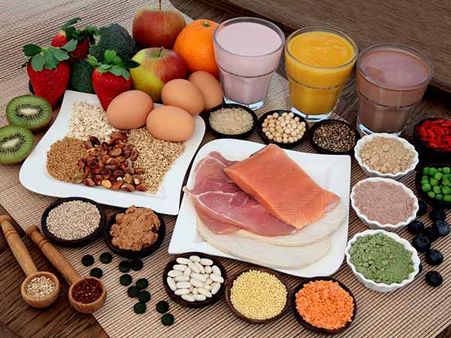
Proteins
Proteins are the building blocks of the body. Proteins help in the growth and maintenance of muscle tissues, provide structure to the body, transport and store nutrients, cause biochemical reactions, and so on. The DRI of protein is 0.8 g per kg of body weight. Include protein rich foods like fish, eggs, beans, tofu, dairy products, chicken, etc., in your diet.

Omega-3 fatty acids
Omega-3 fatty acids are known to boost serotonin, the happy hormone, and it is essential to consume them as women and men both are susceptible to depression in their 20s. It's believed that people who suffer from depression may not have enough EPA and DHA.
EPA treats major depression in adults, bipolar depression and major depression in children. And DHA treats minor depression, postpartum depression and suicidal ideation.
Omega-3 fatty acids are found in fish and other seafood, nuts and seeds, plant oils etc.
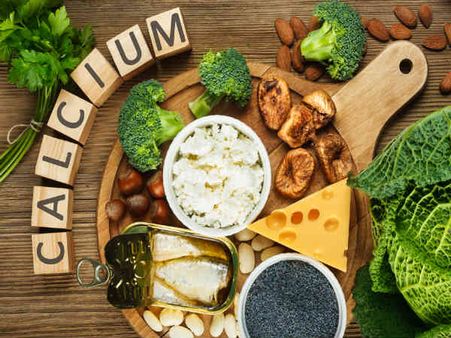
Calcium
According to the National Nutritional Surveys, most people lack the required calcium that they need to grow and maintain healthy bones, which is especially needed in the 20s.
Calcium is also required for the heart, muscles and nerves to function properly and the clotting of the blood. Intake of less amount of calcium in your 20s contributes to the early development of osteoporosis.
Have calcium-rich foods like dark green leafy vegetables, oranges, broccoli, sesame seeds, etc.
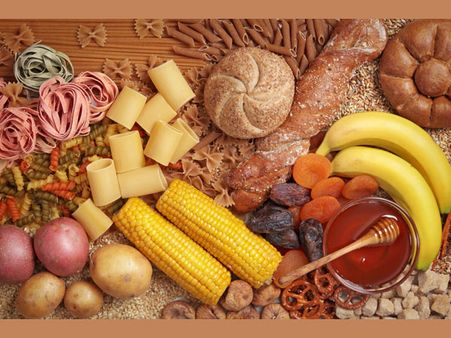
Complex carbohydrates
Research says that when you are in your 20s, it's essential to provide the body with all the nutrients it requires for optimum health. Complex carbohydrates are converted into glucose in the body and keep you energetic and super active when you are in your 20s.
Include complex carbohydrates like sweet potatoes, brown rice and quinoa in your diet.
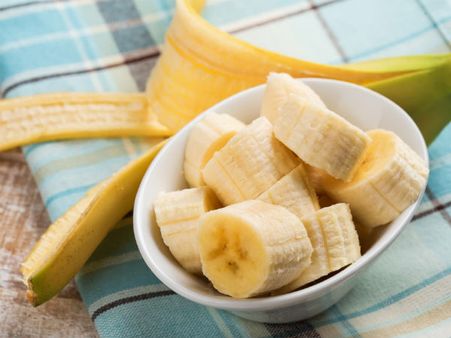
Potassium
According to the USDA, most women in their 20s get lesser than the required amount of potassium necessary for the muscles and heart to function properly.
A World Health Organisation (WHO) study that analyzed data on potassium intake and health, found that increased potassium intake reduces blood pressure in adults without harming the blood cholesterol levels, hormone levels or kidney function. They also found a 24 per cent lower risk of stroke.
Potassium is found in foods like potatoes, sweet potatoes, white beans, nuts and seeds, legumes, fruits like bananas, apricots and oranges and seafood like bass and halibut.

Iron
Iron
is
the
most
important
nutrient
needed
especially
for
women
because
a
major
chunk
of
the
body's
iron
is
lost
while
menstruating.
When
you
are
in
your
20s,
men
and
women
both
require
iron
to
make
new
cells
and
increase
haemoglobin
in
the
body.
The
iron
requirement
is
19.3-20.5
mg/day
for
men
and
17.0-18.9
mg/dayforwomen.
Iron is found in foods like beans and lentils, baked potatoes, spinach, fortified breakfast cereals, whole grains and enriched breads, etc.

Vitamin D
Vitamin D is an essential vitamin that aids in calcium absorption. Not getting enough of vitamin D may make your bones brittle and weak. It is recommended to get 15 mcg of vitamin D every day. Vitamin D is found in foods like eggs, orange juice, fatty fishes, etc.

Vitamin K
Vitamin K is vital at the age of 20 because it helps in strengthening the bone structure and allows cells to grow normally. Women aged 19 years and over should consume 90 mcg a day, and men should have 120 mcg. Vitamin K is found in foods like green leafy vegetables, vegetables such as cabbage, broccoli, cauliflower and fish, meat and liver.
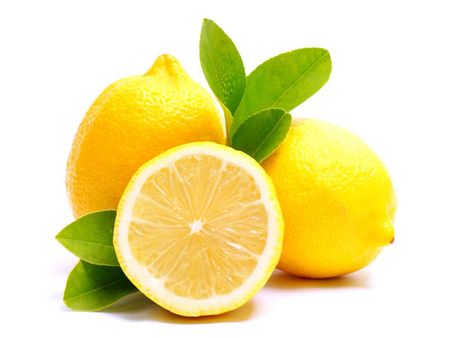
Vitamin C
Vitamin C helps in battling high blood pressure, heart disease, reduces blood uric acid levels, helps prevent gout attacks, etc.
The Food and Nutrition Board of the Institute of Medicine recommends, 75 mg of vitamin C per day when you are in your 20s. Vitamin C rich foods are citrus fruits, strawberries, bell peppers, broccoli, etc.
Other nutrients like folic acid, B vitamins and other essential vitamins and minerals should also be added when you are in your 20s.
-
 healthUnlock Effective Weight Loss: Discover the Top Nutrients in India To Shed That Extra Weight!
healthUnlock Effective Weight Loss: Discover the Top Nutrients in India To Shed That Extra Weight! -
 nutritionHow To Make Your Diet More Sustainable, Healthy Or Cheap - Without Giving Up Nutrients
nutritionHow To Make Your Diet More Sustainable, Healthy Or Cheap - Without Giving Up Nutrients -
 wellnessDeficiency Of These Vitamins And Minerals Can Cause Insomnia
wellnessDeficiency Of These Vitamins And Minerals Can Cause Insomnia -
 nutritionWhat Are Anti-Nutrients? Are They Harmful?
nutritionWhat Are Anti-Nutrients? Are They Harmful? -
 prenatalKey Nutrients For A Healthy Pregnancy: Folic Acid, Vitamins And More
prenatalKey Nutrients For A Healthy Pregnancy: Folic Acid, Vitamins And More -
 wellness74 Simple Health Tips: You Might Not Be Knowing About Number 67
wellness74 Simple Health Tips: You Might Not Be Knowing About Number 67 -
 wellnessDiet And Depression: Healthy Foods That May Help Fight Depression
wellnessDiet And Depression: Healthy Foods That May Help Fight Depression -
 nutrition6 Essential Nutrients To Include In Your Diet
nutrition6 Essential Nutrients To Include In Your Diet -
 wellnessWorld Coconut Day 2020: Is Drinking Coconut Water Safe For Diabetics?
wellnessWorld Coconut Day 2020: Is Drinking Coconut Water Safe For Diabetics? -
 wellness10 Healthy Foods That Cleanse The Colon
wellness10 Healthy Foods That Cleanse The Colon -
 diet fitness6 Nutrients That May Be Missing From Your Weight Loss Diet
diet fitness6 Nutrients That May Be Missing From Your Weight Loss Diet -
 wellnessWhat Are Polyphenol Nutrients And Why Do You Need Them?
wellnessWhat Are Polyphenol Nutrients And Why Do You Need Them?


 Click it and Unblock the Notifications
Click it and Unblock the Notifications



